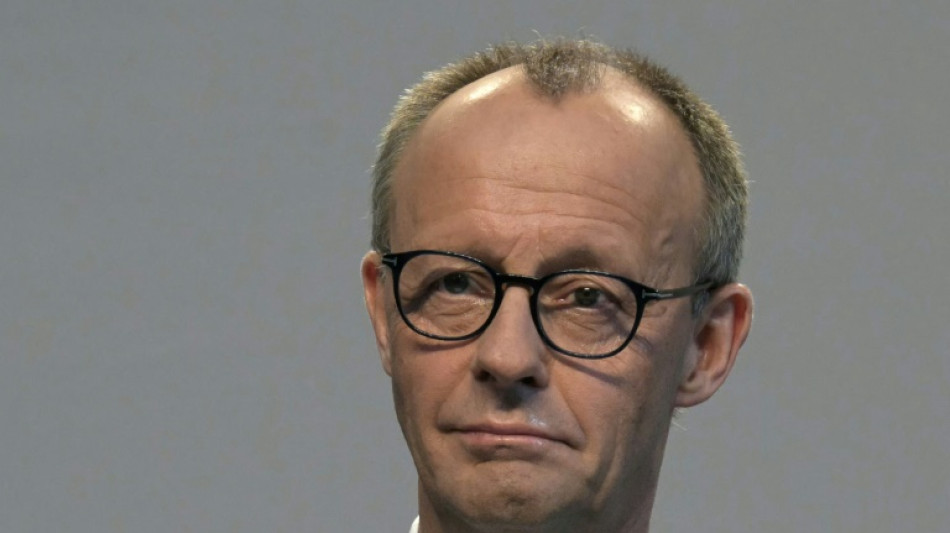
-
 Ruud keeps Barcelona Open defence on course
Ruud keeps Barcelona Open defence on course
-
Trump tariffs could put US Fed in a bind, Powell warns

-
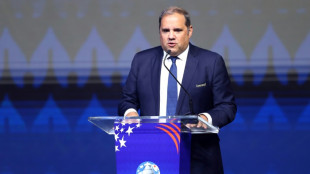 CONCACAF chief rejects 64-team World Cup plan for 2030
CONCACAF chief rejects 64-team World Cup plan for 2030
-
Putin praises Musk, compares him to Soviet space hero
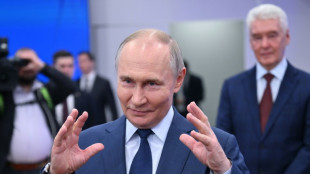
-
 Son to miss Spurs' Europa League trip to Frankfurt
Son to miss Spurs' Europa League trip to Frankfurt
-
US senator in El Salvador seeking release of wrongly deported migrant

-
 Trump tariffs could put the US Fed in a bind, Powell warns
Trump tariffs could put the US Fed in a bind, Powell warns
-
US judge says 'probable cause' to hold Trump admin in contempt

-
 India opposition slams graft charges against Gandhis
India opposition slams graft charges against Gandhis
-
Nate Bargatze to host Emmys: organizers

-
 US Fed Chair warns of 'tension' between employment, inflation goals
US Fed Chair warns of 'tension' between employment, inflation goals
-
Trump touts trade talks, China calls out tariff 'blackmail'

-
 US judge says 'probable cause' to hold govt in contempt over deportations
US judge says 'probable cause' to hold govt in contempt over deportations
-
US eliminates unit countering foreign disinformation

-
 Germany sees 'worrying' record dry spell in early 2025
Germany sees 'worrying' record dry spell in early 2025
-
Israel says 30 percent of Gaza turned into buffer zone

-
 TikTok tests letting users add informative 'Footnotes'
TikTok tests letting users add informative 'Footnotes'
-
Global uncertainty will 'certainly' hit growth: World Bank president

-
 EU lists seven 'safe' countries of origin, tightening asylum rules
EU lists seven 'safe' countries of origin, tightening asylum rules
-
Chelsea fans must 'trust' the process despite blip, says Maresca

-
 Rebel rival government in Sudan 'not the answer': UK
Rebel rival government in Sudan 'not the answer': UK
-
Prague zoo breeds near-extinct Brazilian mergansers

-
 Macron to meet Rubio, Witkoff amid transatlantic tensions
Macron to meet Rubio, Witkoff amid transatlantic tensions
-
WTO chief says 'very concerned' as tariffs cut into global trade

-
 Sports bodies have 'no excuses' on trans rules after court ruling: campaigners
Sports bodies have 'no excuses' on trans rules after court ruling: campaigners
-
Zverev joins Shelton in Munich ATP quarters
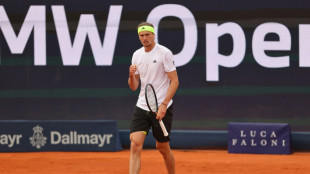
-
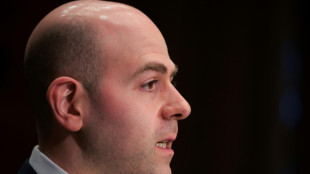 The Trump adviser who wants to rewrite the global financial system
The Trump adviser who wants to rewrite the global financial system
-
US senator travels to El Salvador over wrongly deported migrant

-
 UN watchdog chief says Iran 'not far' from nuclear bomb
UN watchdog chief says Iran 'not far' from nuclear bomb
-
Trump says 'joke' Harvard should be stripped of funds

-
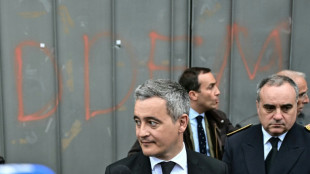 Macron vows punishment for French prison attackers
Macron vows punishment for French prison attackers
-
Canada central bank holds interest rate steady amid tariffs chaos
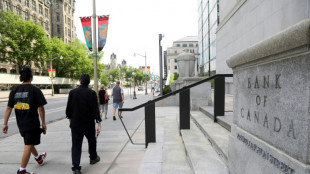
-
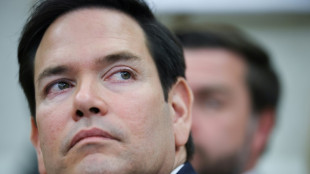 Rubio headed to Paris for Ukraine war talks
Rubio headed to Paris for Ukraine war talks
-
Australian PM vows not to bow to Trump on national interest
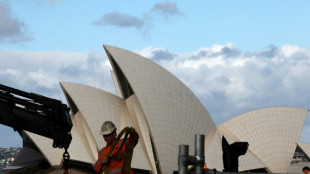
-
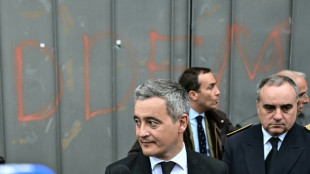 New attacks target France prison guard cars, home
New attacks target France prison guard cars, home
-
Global trade uncertainty could have 'severe negative consequences': WTO chief
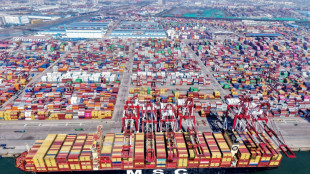
-
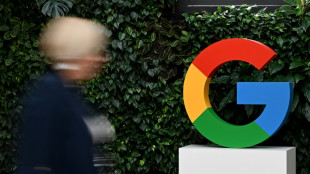 Google facing £5 bn UK lawsuit over ad searches: firms
Google facing £5 bn UK lawsuit over ad searches: firms
-
Onana to return in goal for Man Utd against Lyon: Amorim
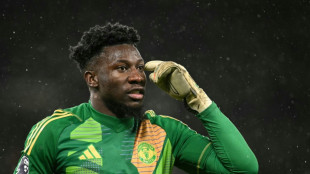
-
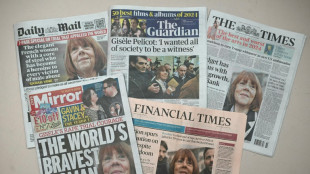 Tiktok bans user behind Gisele Pelicot 'starter kit' meme
Tiktok bans user behind Gisele Pelicot 'starter kit' meme
-
'Put it on': Dutch drive for bike helmets
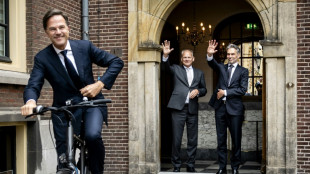
-
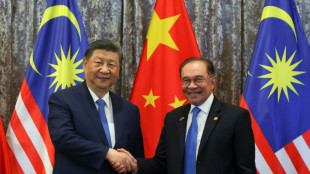 China's Xi meets Malaysian leaders, vows to 'safeguard' Asia allies
China's Xi meets Malaysian leaders, vows to 'safeguard' Asia allies
-
France urges release of jailed Russian journalists who covered Navalny

-
 Gabon striker Boupendza dies after 11th floor fall
Gabon striker Boupendza dies after 11th floor fall
-
UK top court rules definition of 'woman' based on sex at birth
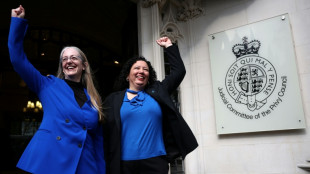
-
 PSG keep Champions League bid alive, despite old ghosts reappearing
PSG keep Champions League bid alive, despite old ghosts reappearing
-
Stocks retreat as US hits Nvidia chip export to China
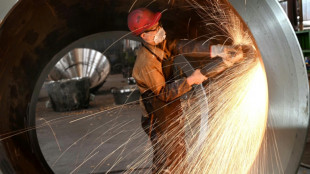
-
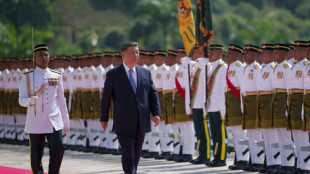 China's Xi meets Malaysian leaders in diplomatic charm offensive
China's Xi meets Malaysian leaders in diplomatic charm offensive
-
Israel says no humanitarian aid will enter Gaza

-
 Anxiety clouds Easter for West Bank Christians
Anxiety clouds Easter for West Bank Christians
-
Pocket watch found on Titanic victim to go on sale in UK
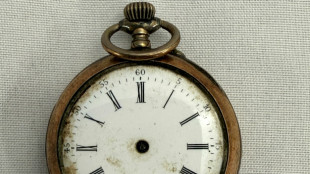

Germany 'back on track' says Merz, unveiling new coalition
Germany's next leader, the conservative Friedrich Merz, vowed Wednesday to "move the country forward again" by boosting the economy and defence as he presented a deal to launch his coalition government by early next month.
Merz is set to take over as leader of Europe's top economy just as US President Donald Trump has sparked global trade turmoil and raised deep fears about future transatlantic security ties.
Asked at a news conference if he had a message for Trump, Merz said in English that the country would meet its defence obligations and rebuild its economic competitiveness.
"Germany is back on track," he added.
Following the February election victory of his CDU/CSU alliance, Merz has struck a deal to forge a new government with the centre-left Social Democrats (SPD) of the now caretaker Chancellor Olaf Scholz.
"The coalition agreement is a signal of a new beginning... for our country," said Merz, whose party won the elections with 28.5 percent of the vote. The far-right AfD took second place.
- 'Europe can rely on Germany' -
In their 144-page coalition contract, the two big centrist parties vowed to "significantly" boost defence spending amid growing concerns about US commitment to European security under Trump.
The parties also said Germany would continue to support Ukraine as the United States looks to encourage a deal to end the war started by Russia's full-scale invasion over three years ago.
"We will provide comprehensive support to Ukraine so that it can effectively defend itself against the Russian aggressor and assert itself in negotiations," the agreement said.
Presenting the deal, Merz pledged that Germany would "reform and invest to keep Germany stable, make it safer and make it economically stronger again", adding that "Europe can rely on Germany".
The swift conclusion of the talks -- a process that has in past years dragged on for months in Germany -- is the result of "extraordinary external pressure", said political scientist Wolfgang Schroeder of Kassel University.
"The pressure is coming from Trump, the pressure is coming from the AfD, the pressure is coming from (Merz's) own ranks," he told news channel NTV.
- Migration crackdown -
The run-up to February's election was marked by a bitter debate on migration and a surge in support for the far-right Alternative for Germany (AfD), which scored a record 20 percent of the vote.
Merz on Wednesday said his government would "largely end irregular migration", promising tight border controls and a "repatriation offensive" targeting those in the country illegally.
Germany held general elections on February 23 after the collapse of Scholz's three-way coalition on November 6, the very day Trump was re-elected to the White House.
After the vote, Merz also pledged steps to build up Germany's long underfunded armed forces and to revive its economy, which has shrunk for two years in a row.
He has secured major financial firepower for his ambitious plans after the outgoing parliament approved hundreds of billions of euros in extra spending and a softening of Germany's strict debt rules.
However, this has exposed him to internal party criticism and accusations from the AfD that he has broken campaign pledges and caved in to key demands of the SPD.
- 'Power vacuum' -
Support for the AfD has continued to rise since the election. One survey for the Ipsos pollster on Wednesday rated it as Germany's most popular party on 25 percent -- a point ahead of the CDU/CSU.
Renate Koecher, head of the Allensbach Institute, said the rise of the AfD had been fuelled by Germany's political paralysis at a time of acute global and domestic crises.
"Problems are growing but at the same time we have no government capable of acting," Koecher told the Rheinische Post newspaper.
"The economy is facing increasing difficulties, and decisions are being made in the US that Europe, with Germany in a leading role, should be able to respond to quickly.
"And in this situation, we have a power vacuum. This fuels the unease among the population."
While the SPD plans to ask its members to sign off on the final deal, the CDU plans only to seek the approval of senior party figures.
H.Kuenzler--VB
